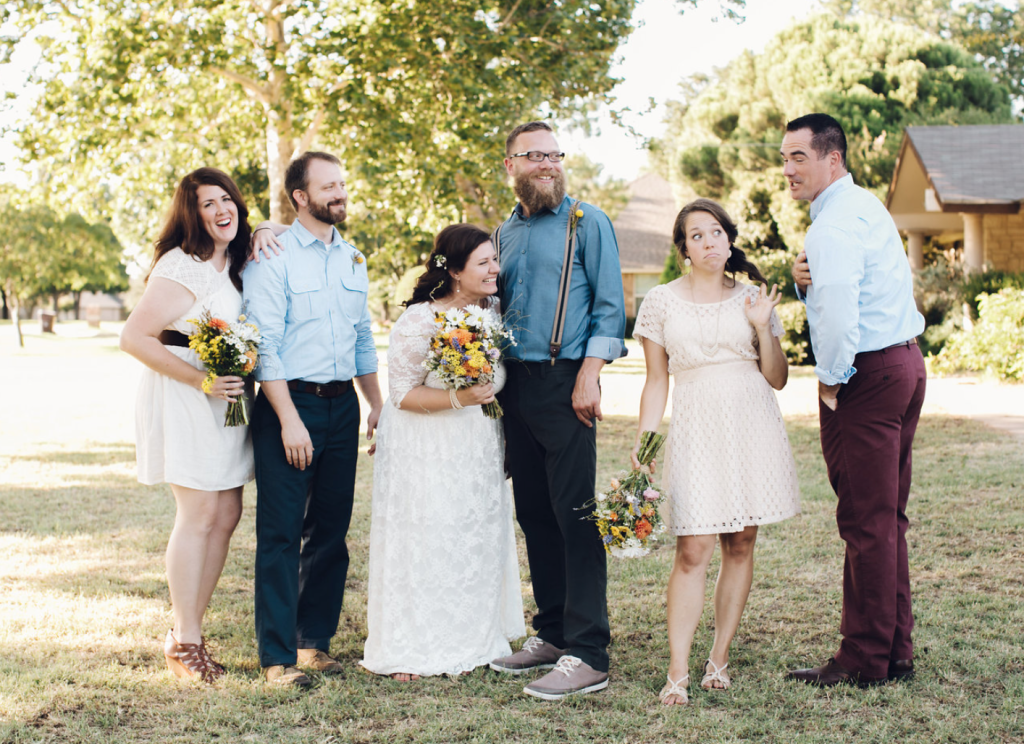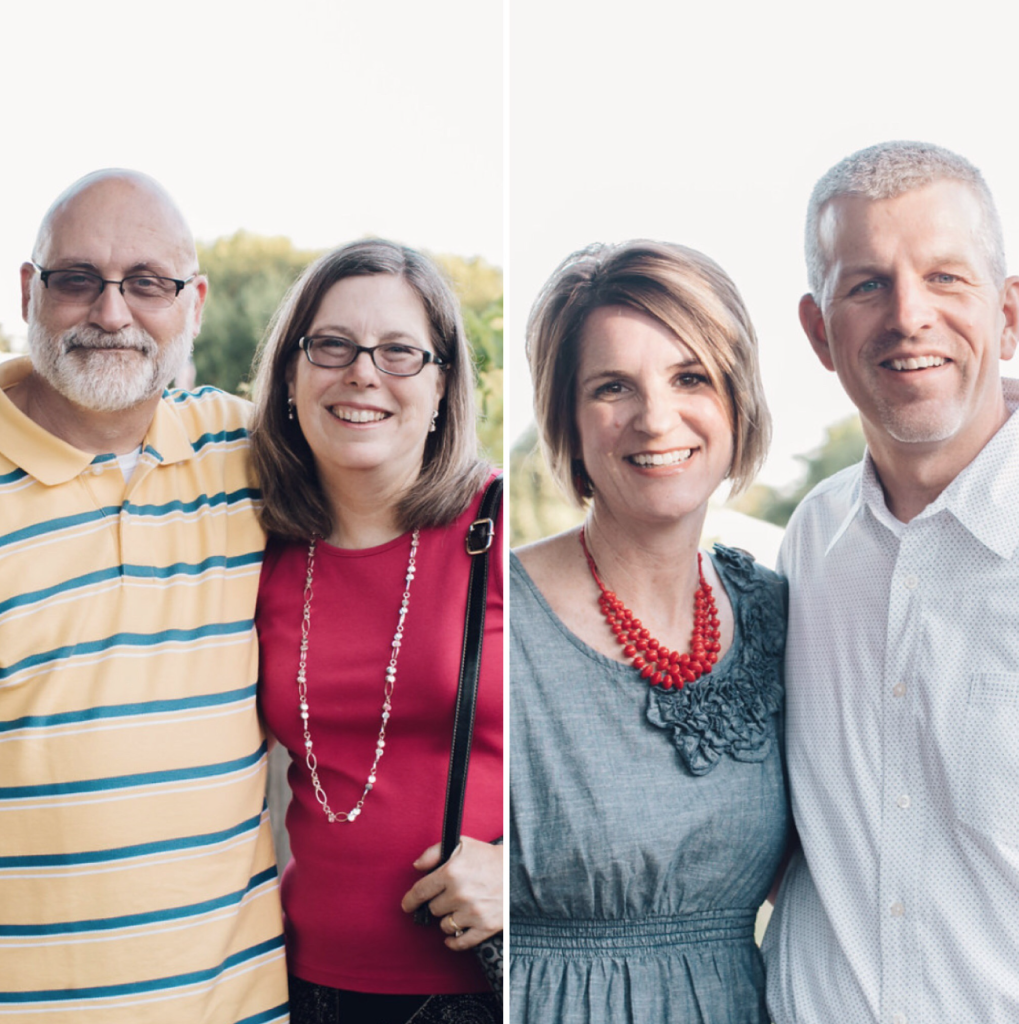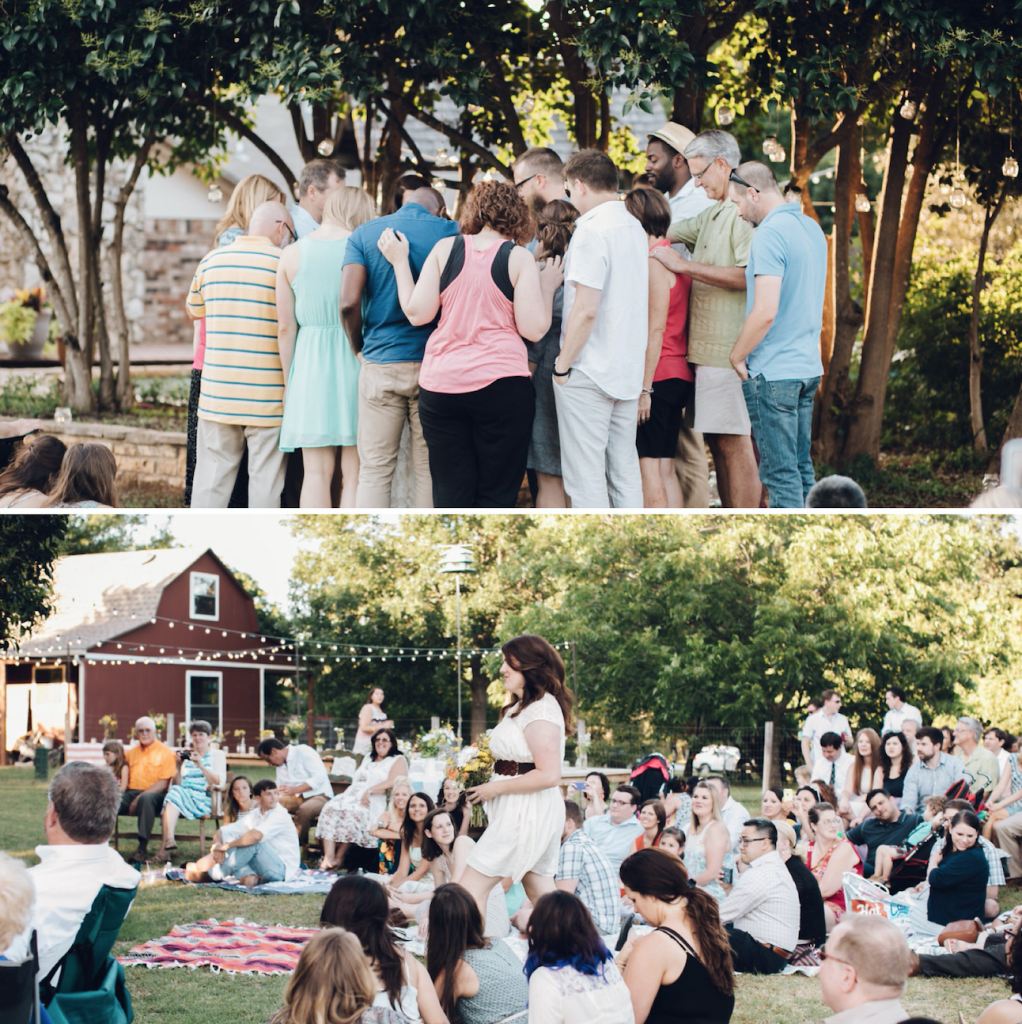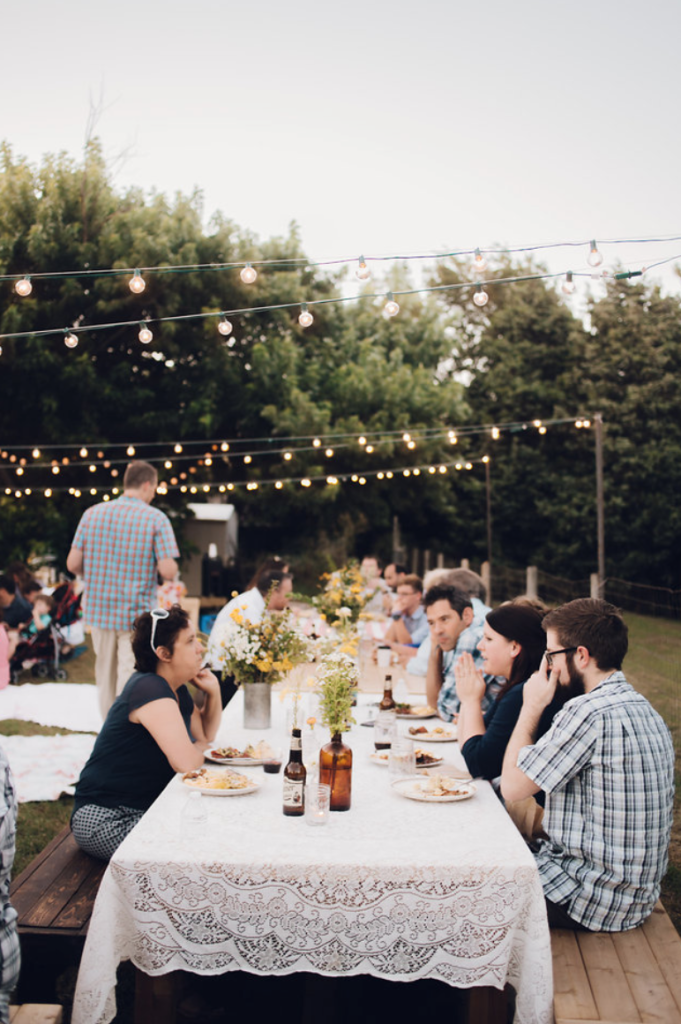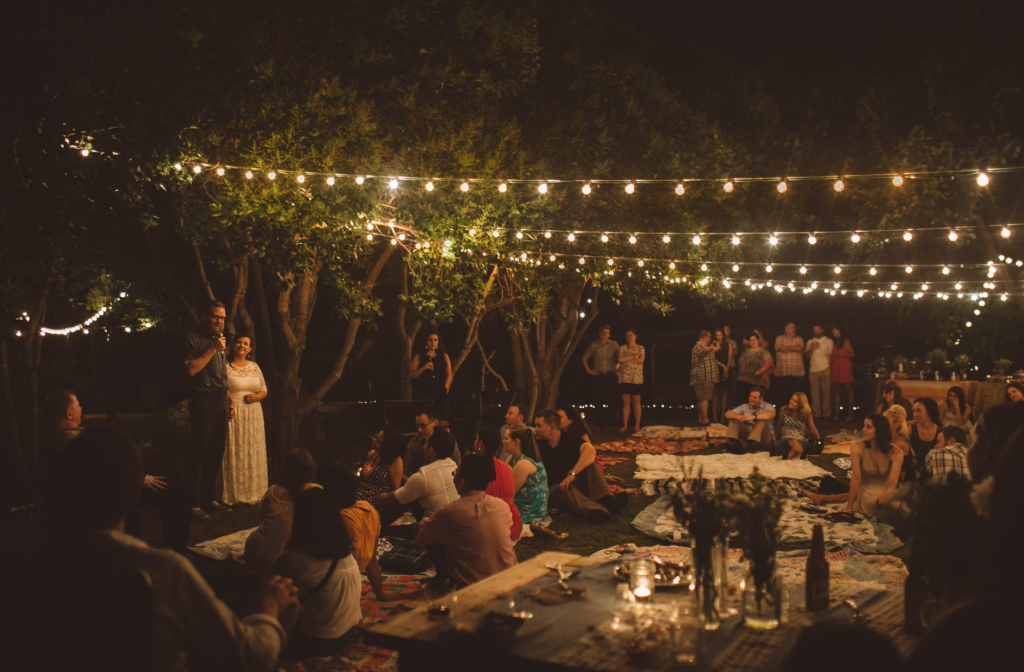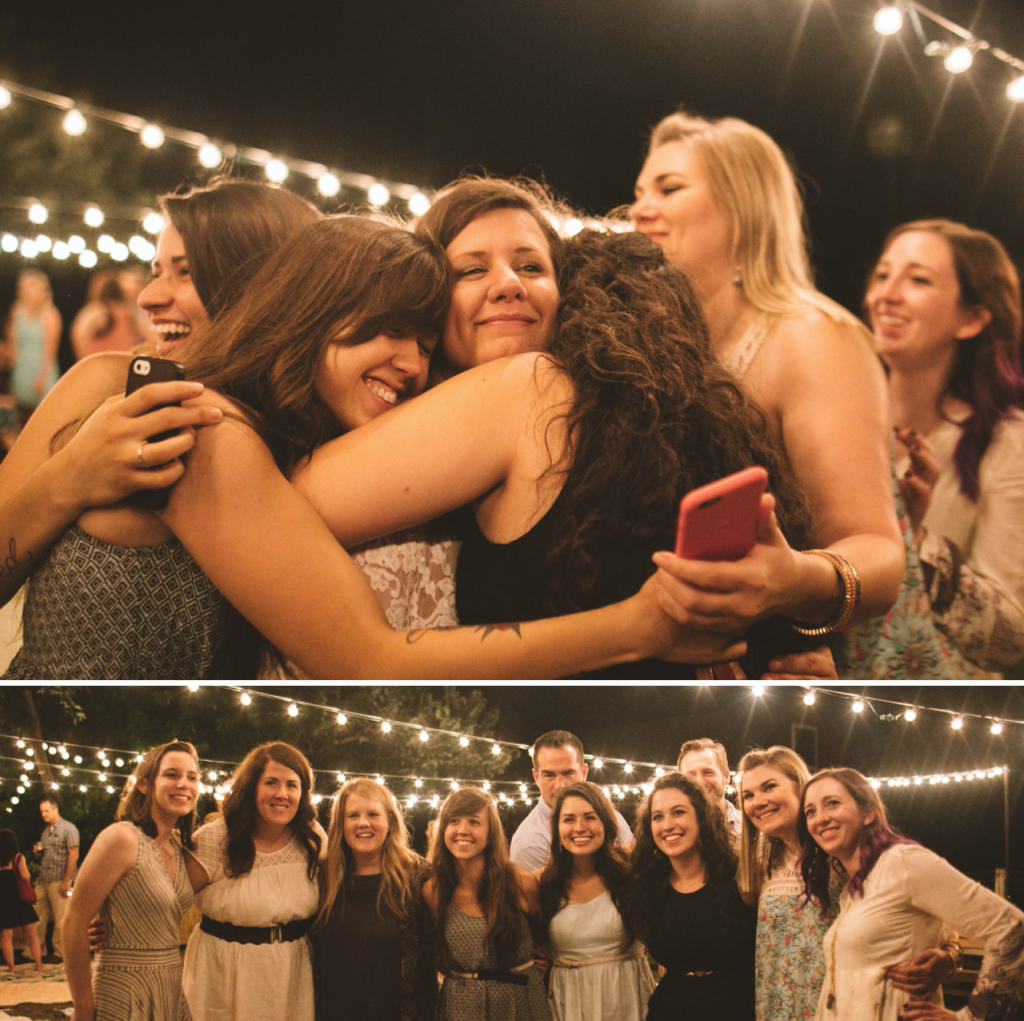 In a world of comparisons, ten months of marriage has nothing on 34 years of singleness, so consider me a toddler in the ways of I Dos. I know very little, but here are four things I do know and I thought I'd share them with you today:
In a world of comparisons, ten months of marriage has nothing on 34 years of singleness, so consider me a toddler in the ways of I Dos. I know very little, but here are four things I do know and I thought I'd share them with you today:
1. Marriage is not more sanctifying than Singleness
Don't believe it for a second if you're single, and don't convince yourself of it for a minute if you're married. It's a lie that one is more sanctifying than the other. If you got married in your early twenties, you grew up into an adult with your person. You were most sanctified during marriage—but not necessarily because of it. Correlation is not causation. This little lesson should be preached by more married people because it leaves most single people in the church feeling less than and not enough until they're married. It's poison. Stop saying it.
God is sanctifying me in marriage differently than He sanctified me in my singleness, the same as He sanctified me in my thirties differently than He sanctified me in my twenties. It's the beauty of growth in the gospel and in life. He's always doing something and always making everything new.
2. Marriage doesn't make you more financially secure; God is the primary breadwinner
I came into marriage never having had a savings account that topped a few thousand. Nate came into marriage with a fat down-payment for our house in Denver and a hefty savings account. We thought between the two of us (me the penny pincher and him the miser), we'd be set.
Within this year of marriage, we've sold a house in Dallas, moved cross-country twice, started two new careers, went through six months of unemployment, and now have a mortgage in Denver and rent in DC—two of the most expensive cities to live in. Any carpet of financial security we had coming into marriage has been ripped out from below our feet. We are less financially secure than either of us have ever been in our lives. We are being whiplashed with bills, costs, and drains from every direction.
I know our story isn't everyman's, but it sure does debunk the lie that "Marriage makes you more financially secure." The reality is having roommates (while that may not be what you desire for the long-term of your life) is a very cost-effective way to live. Those shared bills might feel like a noose around your neck, but they're half or a quarter of what they'll be when it's just one paycheck coming in.
We didn't plan on one paycheck this year. We planned to live in Nate's salary and squirrel mine away. Instead we lost Nate's quickly, and lived on mine and our savings account. It wasn't sustainable. We can beat ourselves up a thousand different ways on this (We shouldn't have left Dallas, we shouldn't have bought a house in Denver, we shouldn't have banked on him being able to work remotely long-term, we should have researched job options for him in Denver better, etc.), but the reality is, we did what we thought was right and good and honorable and faithful—and all of our plans failed.
I'm learning the only thing I can ever find my security in is God—which is the same lesson I've been learning for 35 years. My plans have never worked—never! It was foolish to think that would change just because I got married. God has always required sacrifice of me, always asked for obedience, never given me too much of any good thing. I don't believe it's His character to withhold any good thing, but I do believe it's His character to give us exactly what we need of it and more is never guaranteed. Marriage and money included.
3. This one might be TMI, but here goes: the world tells us to get whatever we can from sex, but the truth is sex is only good if you give what you can—and the more you're willing to give, the better it is.
That might be confusing, so let me flesh it out (Also, I'm having a very hard time writing this section because suddenly every word is an innuendo of some sorts.):
There was an angst in my singleness that had much to do with wanting a partner, wanting to shoulder the burdens of life with someone, wanting someone to love me, etc. But there was also a very real angst of sexual desire in me. I wanted to be held and loved and pursued. I didn't need it to end in sex, but it culminated many times in sexual desire being fanned in my life. I don't think that's a bad thing. God created sex, sex is good, desiring sex is good, and getting married is good. Burning with passion is actually a good motivation (among other things) for getting married. But sex was what I thought would somehow satisfy some longings of my flesh. I wanted my desires to be met physically.
Sex within marriage is good but its goodness is almost never about my desires being met. My husband is a good and caring man, faithful, kind, gentle. He is tender with me and loves me deeply. But neither of us can satisfy desires that are too deep for words and too complicated for human hands. The best we can do is to come to bed ready to serve one another.
What I have learned about sex is that instead of it being the culmination of all the things of the day, sex is actually a very gritty, raw, messy foundation in our lives.
Instead of being the pinnacle, the point, the top of the triangle (thinking I do all the big, heavy lifting throughout life for the tiny slice of joy at the top), it is actually the base of it. Sex is the biggest part. Not because it happens the most, but because when there are a thousands things throughout the day demanding my attention, and most of them are serving my husband in some way (laundry, dishes, food prep, errands, phone calls, bills, etc.), the foundation we have within sex to serve one another makes the day to day monotony a joy.
The climax of sex is not a romp under the covers, it's asking him every morning how I can help make his day better. It's putting a healthy nutritious meal in his lunch bag. It's running to Home Depot to get a special sauce for the weed-eater. It's folding the ratty t-shirts from races he ran in high-school.
The foundation of learning to serve within my singleness translated directly to how I learn to serve within marriage. Serving my husband in sex is easy—even if there's no physical return in it for me, because whether in bed, the kitchen, or Home Depot, serving is the posture of the Christian—married and single.
4. I am not my own anymore; marriage is shared sanctification
This has probably been the hardest adjustment for me to make within marriage. It's not just about schedule, finances, decisions, etc. Those things are challenging for sure. I'm used to planning my own day, caring for my own finances, and making whatever decisions seemed best to me. I can't do that anymore. Every piece of me affects a person I love. It's a joy, but it's not as easy as it sounds.
What is more difficult, though, is the shared burden of sanctification. This relates to point one because I think often times what married people mean when they say "Marriage is the most sanctifying thing," is that saying I Do to all your mess means more mess in my life. In singleness whenever I walked through challenging things it was almost always easy to see where God was sanctifying me and to make small adjustments in my life to submit to Him in those areas. In marriage, though, it's two people walking through the same challenges together. God doesn't waste anything, but sometimes the bulk of the lesson is meant for me and sometimes it's meant for Nate. How can you tell?
Therein lies the challenge. As we've walked through this past season of financial difficulty it has revealed areas in our lives of idolatry, fear, pride, and more. And it has primarily affected Nate. Most of the idols being toppled are his in that area. On the other hand, we've just walked through a season where I've encountered some fearful things, the shootings, the miscarriages, failed plans, my car being vandalized, Nate's job loss. Never in my life have I been a fearful person and at every turn these days, I'm afraid of something. God is teaching me He is the only one who is trustworthy and He is faithful.
God is teaching both of us things in paramount ways, but they are different things, and the struggle in being one flesh is entering into that sanctification process with the other. It feels like our feet are cemented to the floor and we can barely encourage ourselves, how do we begin to encourage one another?
This is what I've been learning: I am not my own anymore. In the past, I was the primary preacher to my soul. I was my best encourager. I was the one who pulled myself up by my bootstraps. But I'm not anymore, I feel paralyzed in the encouragement of my own soul. But I am not paralyzed in the encouragement of Nate's soul. This is the gift of walking through the mud together: I know the words that lift up his eyes to the hills, and he knows the words for me. It's beautiful and painful, precious and hard. We are not our own anymore.
. . .
This is long, I know, but I'm hoping it helps some other newlyweds along the way and some singles who might be believing lies about themselves or their married friends.








